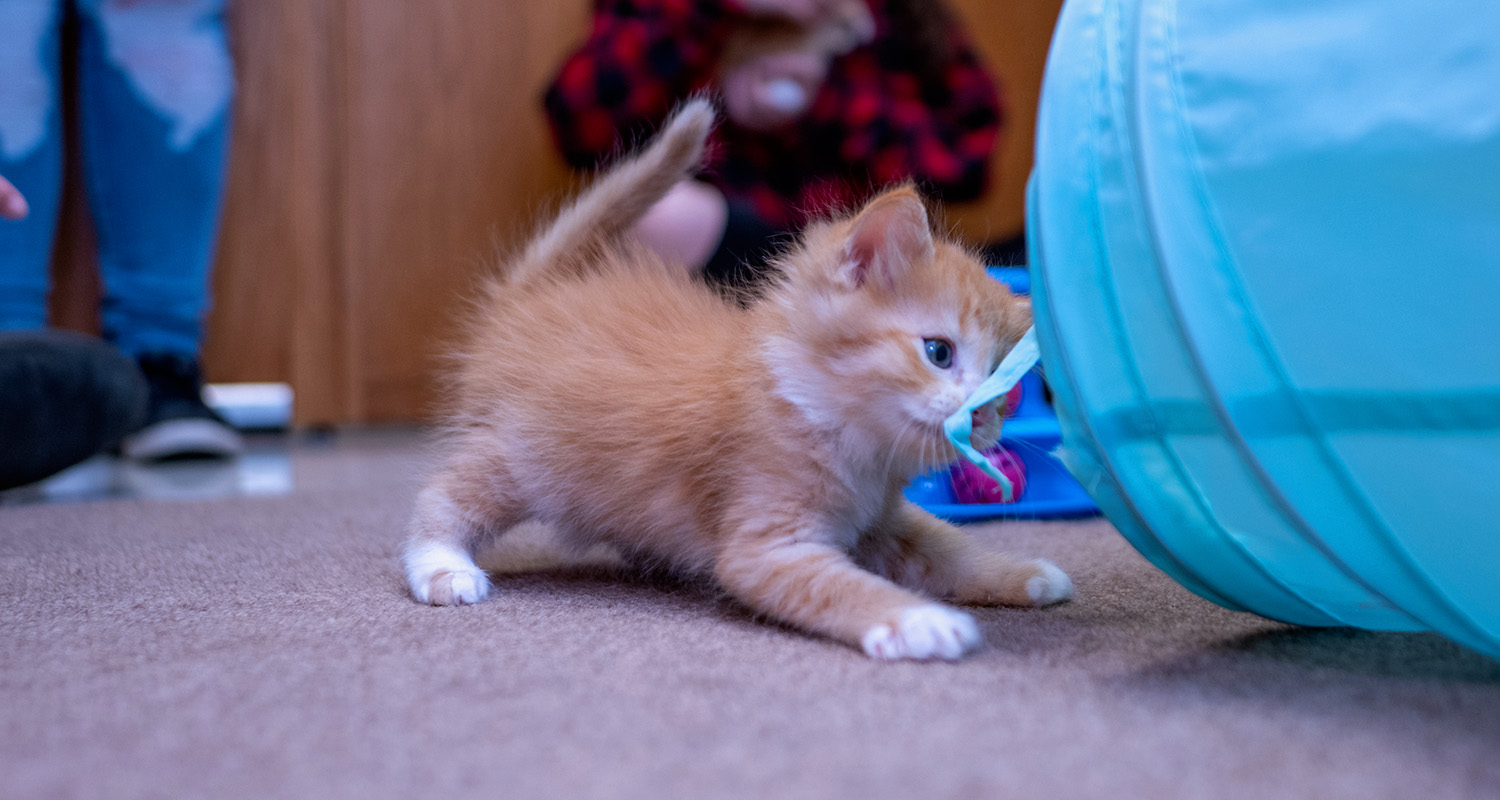Learn By Doing
A hallmark of our college and department are the real-world learning opportunities we offer. Our faculty and staff are well-connected in the industry, many actively engaged in the industry themselves. Explore this page to learn about the many on and off-campus opportunities you'll have to get real-world experience, including visits to area farms, animal care facilities and food processing plants. Respected throughout the industry, our longstanding CAFES internship program gives you the chance to obtain extended workplace experience - and the majority of internships are paid positions!
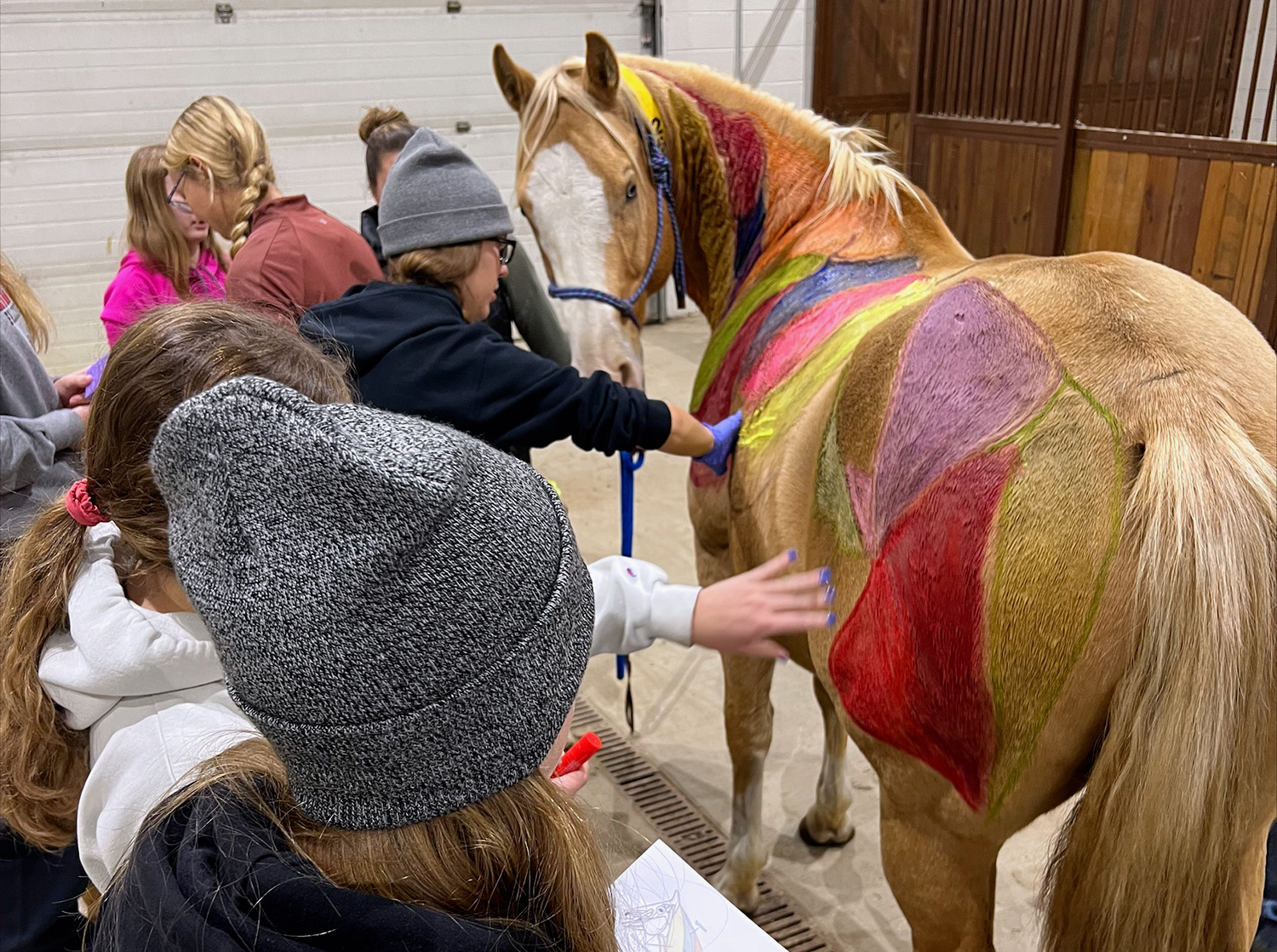
Laboratory Farms
We have two farms called “laboratory” farms because we use them for many animal science hands-on laboratory activities. The farms employ students, providing an opportunity to get even more hands-on experience working with animals. Both farms are also used by faculty for research studies and they often hire students to assist with these projects.
The Campus Farm is within walking distance of the main campus and is primarily dedicated to the animal science-equine program. The facilities allow students to get hands-on experience with the important aspects of the equine industry – including breeding, care of pregnant mares and foaling, the training of young colts and fillies and equitation.
Mann Valley Farm is dedicated to production agriculture and sits just outside the city of River Falls. The farm is comprised of dairy, beef, sheep, swine, cropping and composting enterprises. There are two classrooms in the Dairy Learning Center (DLC), adjacent to the milking parlor, and a short distance from both the compost dairy barn and the calf barn. When not working with the animals in the barns, the animals may be brought into the pavilion for specific activities. Both the DLC and the pavilion are used by our student organizations and judging teams for events, practices, shows and sales. Students are introduced to the farms with their first animal science course, Introduction to Animal Industry (ANSC 100), and after that nutrition, production, reproductive techniques and other courses frequently meet at the farm.
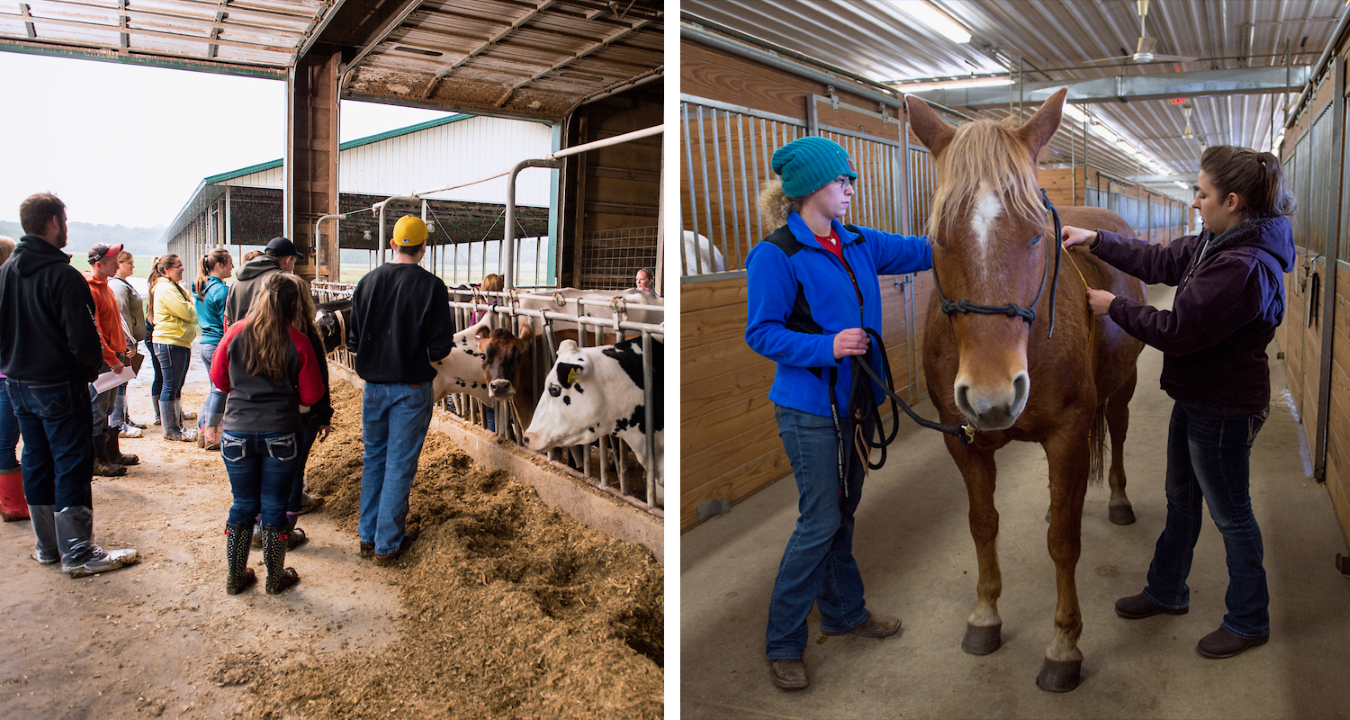
The Wuethrich Family – Grassland Dairy Center of Excellence
The UWRF Dairy Plant was recently renovated thanks to support from Wisconsin’s dairy processing industry, including $1M from the Wuethrich Family of Grassland Dairy. The plant now houses state-of-art dairy processing equipment and provides the ability to do large and small production runs. In addition to producing a variety of cheeses, quark and other dairy products, the plant is first and foremost a teaching facility, where students can work and learn aspects of dairy processing and production all the way from getting the milk from the cows at UWRF’s Mann Valley Farm to marketing the products under the Falcon Creamery name via Freddy’s Dairy Bar on campus and other outlets. And it's not just food science and technology students that make use of the plant! With it’s extensive network of pipes, valves, temperature sensors, process monitors, heat exchangers, membrane separation systems and more, it’s perfect for teaching process engineering!
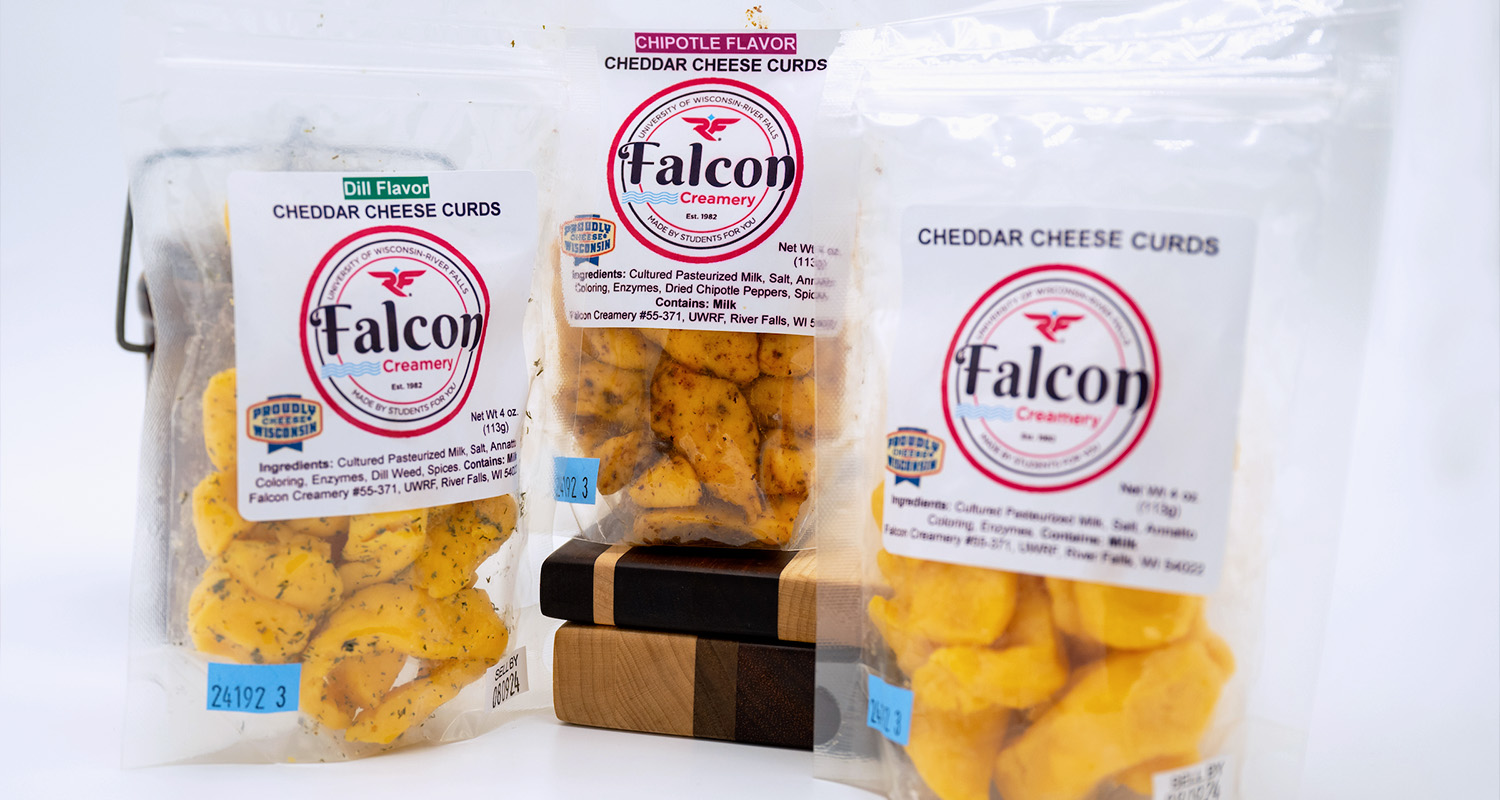
Dairy Innovation Hub
The Hub is a state-wide initiative involving UW-River Falls, UW-Platteville and UW-Madison. An annual investment of $7.8M is supporting research and development at the three campuses to keep Wisconsin’s dairy community at the global forefront of producing nutritious dairy products. Hub faculty teach and do dairy-related research focusing on economic, environmental and social sustainability. Most of these research projects offer opportunities for students to be involved, a perfect learning experience for anyone interested in continuing their education in graduate school. Specific projects have ranged from applied studies on the health and performance of dairy calves, to optimizing casein micelle nanoparticle formation for potential use as a delivery system for nutraceuticals, to gaining a better understanding of the issues impacting water quality in agricultural areas.
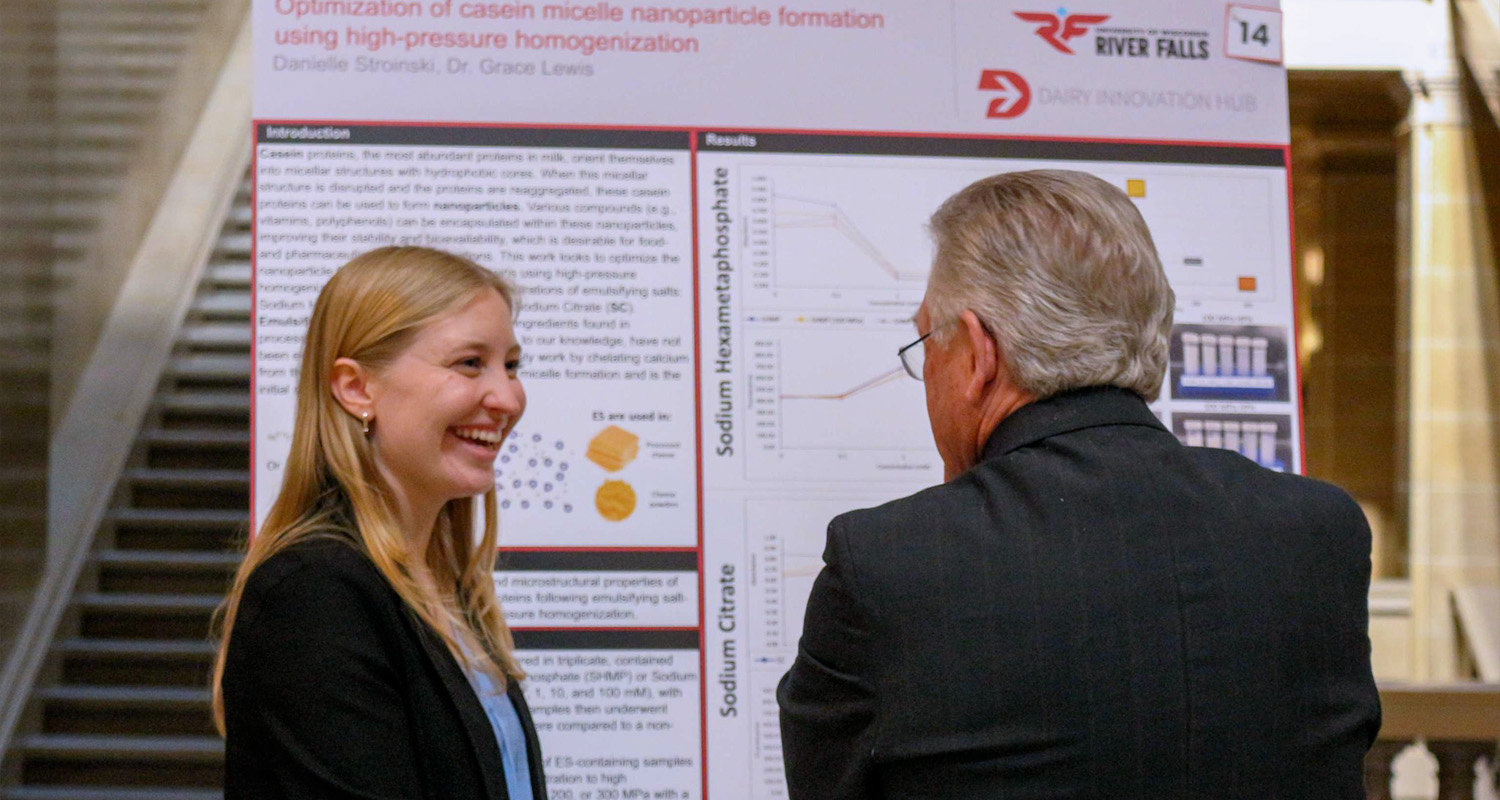
Humane Handling Institute/Animal Welfare Lab
A first-of-its-kind program, the Humane Handling Institute (HHI) provides comprehensive hands-on training for humane livestock handling, stunning and equipment maintenance. HHI is an outgrowth of work done by faculty and students in our Animal Welfare Lab. By tracking humane handling enforcement actions issued by USDA, they identified stunning as a critical area of need for more training and development. Certification through the HHI program elevates the skill level of meat industry employees and strengthens consumer trust in meat processing establishments.
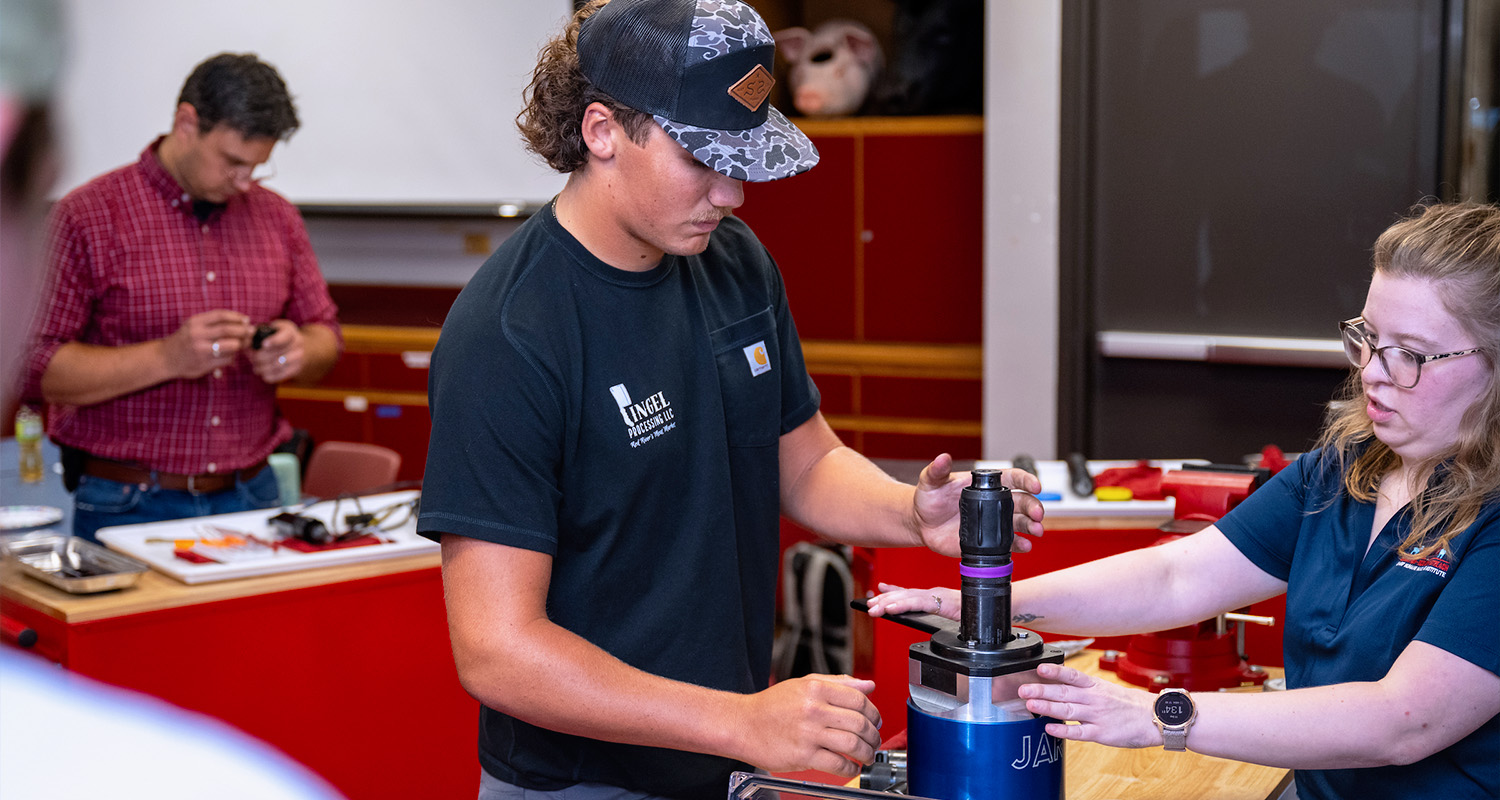
Meat Plant
The UWRF Meat Plant is a USDA-inspected facility and offers all the benefits of a full-scale plant production environment on a smaller scale. The plant is staffed by six to eight students under the supervision of the plant manager. Students gain hands-on experience, learning the many aspects of the meat industry including harvesting, fabricating and value-added processing of meat products, as well as maintaining high manufacturing standards focused on food safety and quality assurance.
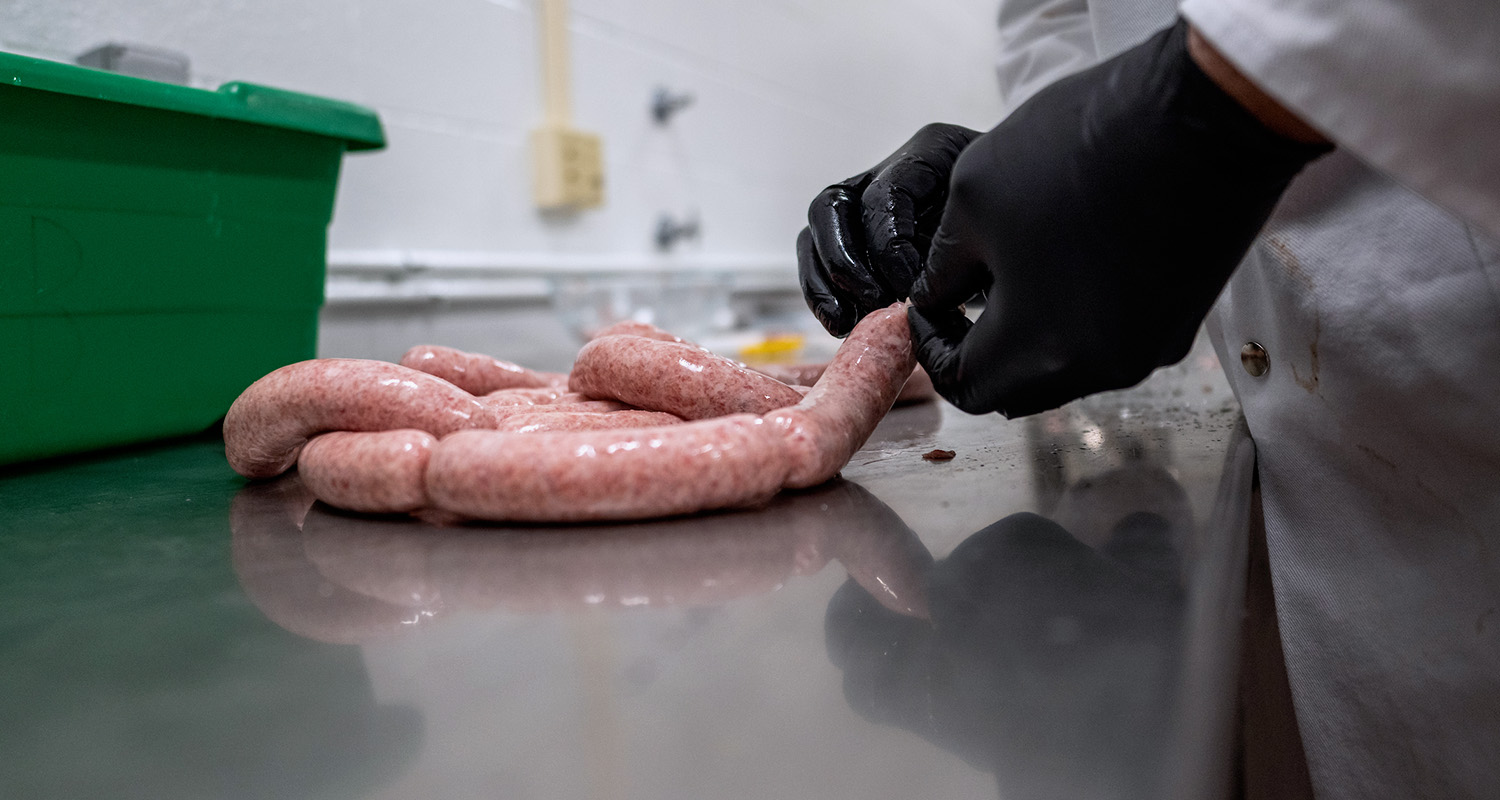
Falcon Fetch
Falcon FETCH is a partnership between UWRF and Can Do Canines, an assistance dog training organization based in New Hope, Minn. Our partnership offers a unique themed community in a residence hall, with teams of two students being paired with a dog and living in Stratton Residence Hall, with much of the training taking place at the Lydecker Living Learning Center. on campus. The dogs spend a semester or longer at UWRF, then undergo more training through Can Do Canines before they are paired with a person in need of assistance. The assistance dogs are trained to help with a variety of tasks, ranging from mobility issues to monitoring low blood sugar levels.
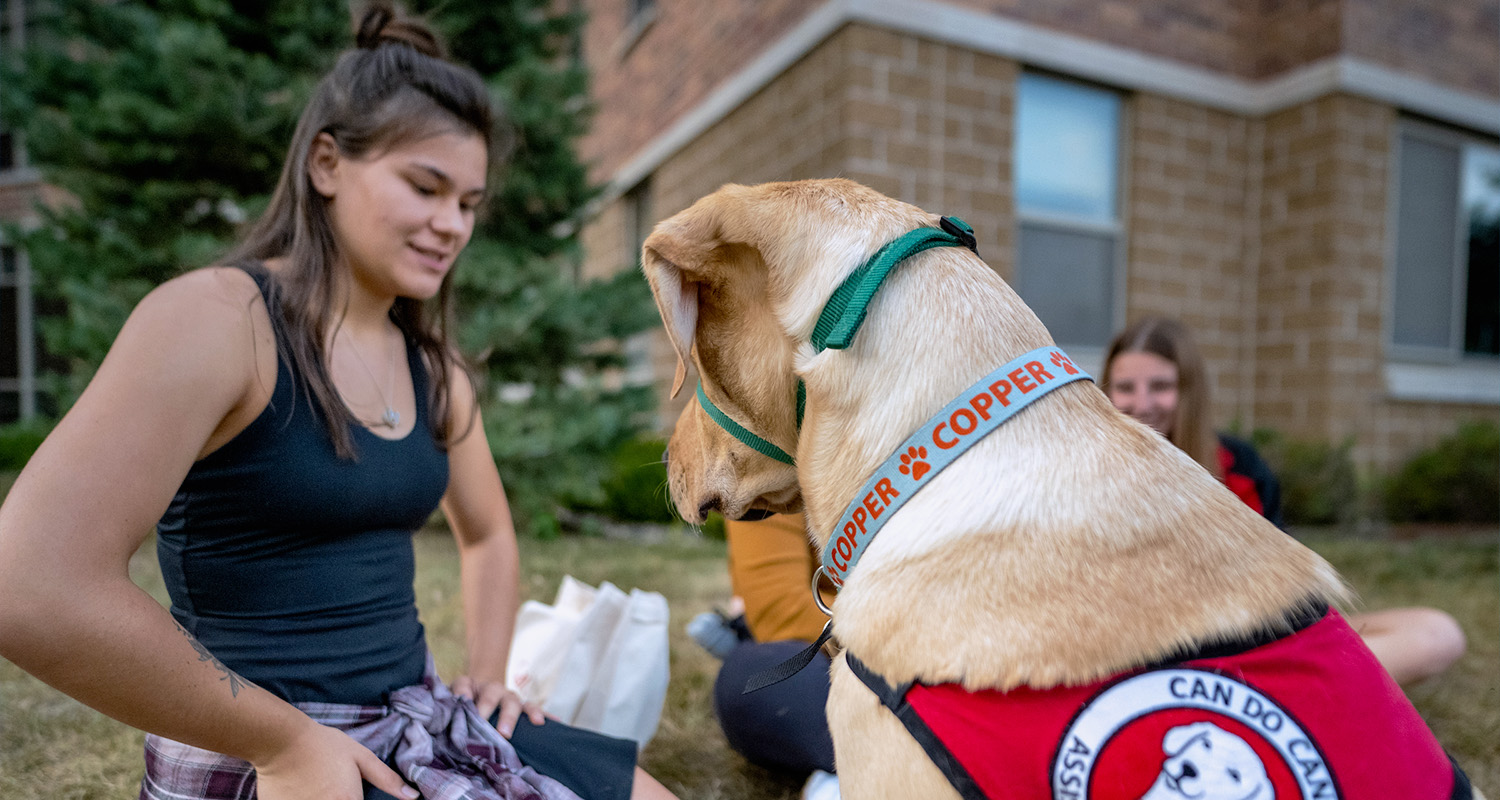
Falcon Felines
Falcon Felines, in partnership with the Dunn County Humane Society, is feline adoption program housed on campus. The program is led by the Advanced Canine and Feline Care and Management (ANSC421) class which maintains the facility, cares for the cats and staffs a regular schedule of open adoption hours. The hands-on experience solidifies what the students learn in class.
